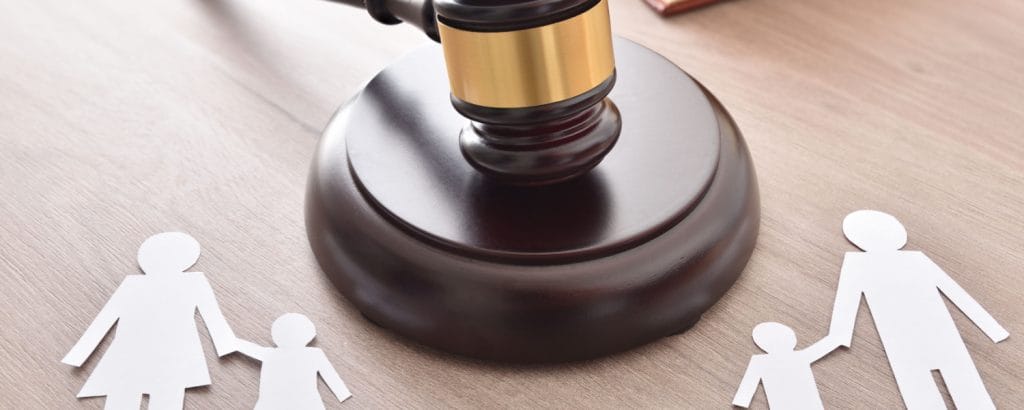Divorce is a complex and emotionally charged process that marks the end of a marital journey. Amidst the heartache and turmoil that accompany the decision to dissolve a marriage, the legal formalities cannot be ignored. One crucial step in the divorce process is signing the divorce papers. Yet, what happens if you don’t sign divorce papers? Is it possible to avoid the paperwork and prolong the inevitable? In this article, we will delve into the legal and emotional consequences of not signing divorce papers in Illinois, shedding light on the complexities that arise from refusing to put pen to paper.
Also check out: “Family Law vs Divorce in Illinois”

The Divorce Process
Before diving into the potential consequences of refusing to sign divorce papers, it’s essential to understand the divorce process itself. Divorce proceedings typically involve several steps, including filing a petition, serving legal notice to the spouse, division of assets, child custody arrangements, alimony discussions, and the finalization of the divorce decree. Signing divorce papers is one of the first steps of this process, representing both parties’ agreement to end the marriage legally.
These papers are typically served to the other spouse, known as the Respondent, by a neutral third party after the petition has been created and filed. You can do this alone by using forms from the court but it is recommended you search for help from a qualified Family Law attorney in your area. For more information check out: “How to Respond to Divorce Papers Without a Lawyer.”
After the petition has been filed you have to serve the Respondent with the documents included in the petition along with the petition itself. They will then have 30 days to respond by either signing the petition and agreeing to the terms of the petition, or to dispute the petition by filing an answer. They can also use that time to find a lawyer if they so choose. Check out your local county clerk’s office website to see example forms.
This is the point where your spouse may not choose to sign the petition, or they may avoid service. While this may seem daunting, do not worry. If the Respondent refuses to sign the petition you may be able to get a default judgement. Keep reading to learn more.
Contested and Uncontested Divorces
Contested Divorce: If one spouse doesn’t agree to the terms in the divorce papers, or if you don’t sign divorce papers, it leads to a contested divorce. This means that instead of an amicable agreement, the couple must resort to litigation. This not only prolongs the process but can also lead to higher legal costs and increased tension between the parties. To learn more about how long the process takes check out: “How Long Does an Uncontested Divorce Take in Illinois?”
Uncontested Divorce: An uncontested divorce happens when both parties agree to the terms of the agreement. Often these couples will file the papers together because they already agree to the terms. If your spouse signs the divorce papers and agrees to all the terms then your divorce is considered uncontested. Uncontested divorces take much less time to finalize than contested divorces, and judges will often accept the petition as presented.

Legal Consequences of Not Signing Divorce Papers
There are many reasons why someone might not sign divorce papers. These reasons include:
- Religious Reasons
- Denial
- Fear of Judgement
- Financial Insecurity
Luckily it only requires one party to file for a divorce. If your spouse refuses to sign the papers, or hides from service, there are still options. Courts understand that these issues are deeply personal and can be traumatic. To save you from unnecessary strain, the courts may attempt service for you by certified mail, through the county sheriff’s office, or by publication in a newspaper if you have been unsuccessful in serving your spouse through other means. If the Respondent still fails to appear after numerous service attempts then you may get a default judgement.
Default Judgement
If your spouse refuses to sign the divorce petition, and service has been attempted through multiple means, you may be able to ask the court for a default judgement. If you have had trouble serving your spouse with the petition, you may ask the court for help. If this is still ineffective then the other spouse will be in default. When a judge decides on a default judgement, they typically will agree with the petitioner, you, and grant your dissolution of marriage by the terms in your petition including:
Division of Assets: Refusing to sign divorce papers doesn’t prevent the division of marital assets. Courts will still determine how property, debts, and other assets are distributed based on applicable laws and regulations. Judges reserve this power even during an uncontested divorce. If you do not want your assets split without your input then you should accept service of divorce documents and appear in court so the judge can hear your side and a hopefully amicable solution can be reached.
Child Custody: If children are involved, not signing divorce papers doesn’t absolve parents of their responsibilities. The court will still make decisions regarding child custody and support arrangements in the best interests of the children. This is often the highest priority for a family court judge. If you want to keep a reasonable parenting plan then it is important to accept service and appear in court. To see what a parenting plan in Illinois typically looks like check out the Illinois Courts website to find free forms for use.
If you are unsure of what to do it is always a good idea to reach out to a qualified family law attorney in your area. If you do not follow court orders, there can be legal concequences. If you want to learn more about “What Happens If You Do Not Follow a Family Court Order In Illinois?” click the link.

Emotional Consequences of Not Signing Divorce Papers
Extended Emotional Turmoil: Dragging out the divorce process by not signing papers can intensify emotional turmoil. The uncertainty and prolonged conflict can hinder healing and moving on.
Communication Breakdown: Refusal to sign divorce papers can worsen communication between spouses. This can make it difficult to address important matters, such as co-parenting or dividing assets, in a productive manner. Communicating well and working together to reach an uncontested divorce is the easiest way to make the process faster.
Impact on Children: If children are involved, protracted divorce proceedings can have a lasting impact on their emotional well-being. Children may struggle to adapt to prolonged conflict and uncertainty, affecting their mental and emotional development.
Financial Strain: Lengthy divorce proceedings can strain finances, as legal fees and court costs continue to accumulate. This financial burden can exacerbate stress and hinder the ability to rebuild after the divorce is finalized.
Missed Opportunities: Prolonged divorce proceedings can prevent individuals from moving forward with their lives. Opportunities for personal growth, new relationships, and career advancement may be delayed due to ongoing legal battles. Contested divorce proceedings can lead to nightmare scenarios with years of litigation. This does not happen often, but it is not uncommon when two individuals cannot agree.
Alternatives to Consider
If the prospect of not signing divorce papers seems overwhelming, there are alternatives to explore:
Mediation: Mediation involves working with a neutral third party to resolve disputes and reach agreements outside of court. This approach can be less adversarial and time-consuming than traditional litigation. If mediation goes well then the final agreement will often be an uncontested divorce, saving you time.
Collaborative Divorce: In a collaborative divorce, both parties and their respective attorneys commit to finding solutions through cooperation rather than conflict. This approach prioritizes open communication and creative problem-solving.
Legal Counsel: Seeking legal advice from a qualified attorney is crucial. They can guide you through the legal implications of refusing to sign divorce papers and help you make informed decisions regarding your assets, future, and rights.
Conclusion: What Happens If You Don’t Sign Divorce Papers?
While the idea of not signing divorce papers might cross your mind, it’s essential to recognize that avoiding this step comes with significant legal and emotional consequences. Protracted divorce proceedings can prolong the pain and stress associated with the end of a marriage, and leave you with a result you are satisfied with. By understanding the potential outcomes, seeking legal advice, and considering alternatives, you can navigate the divorce process with greater clarity and insight, enabling you to move forward towards a brighter future. Remember, embracing the journey to healing is an essential step towards finding closure and starting anew.
MEET WITH AN ILLINOIS FAMILY LAW ATTORNEY TODAY
The Family Law attorneys at Koth Gregory & Nieminski understand that your family is the top priority, which is why we offer SAME-DAY APPOINTMENTS. If you need a divorce or other family law services, you can schedule your first meeting through our online appointment calendar. We look forward to meeting you.
Disclaimer: This article (What Happens If You Don’t Sign Divorce Papers?) may contain information that is outdated as Illinois law continuously evolves. Meeting with an experienced family law attorney is the best way to ensure you are receiving the most current information to answer the question What Happens If You Don’t Sign Divorce Papers?

Published by Dustin Koth on February 24, 2024

